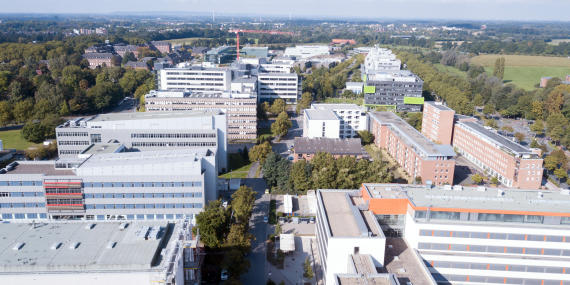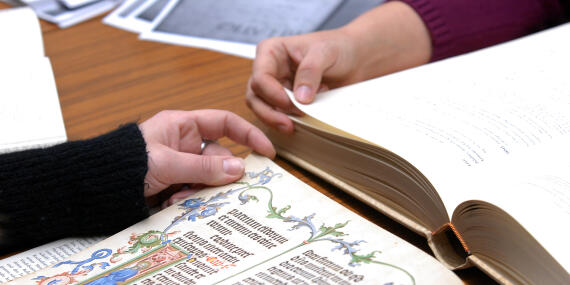Research profile
The University of Münster promotes internationally renowned, cutting-edge research in mathematics, the humanities and social sciences, the natural sciences and life sciences. These areas comprise outstanding basic research and application-oriented projects. In addition to overseeing two Clusters of Excellence, the University of Münster is the designated spokesperson in ten DFG collaborative research centres. Ten Leibniz Prize winners currently work at the University of Münster. Around 20 grants by the European Research Council (ERC - Starting, Consolidator and Advanced) and six Max Planck Research Awards underscore the excellent research performance.


